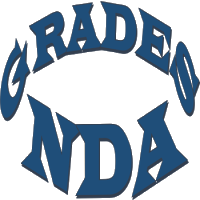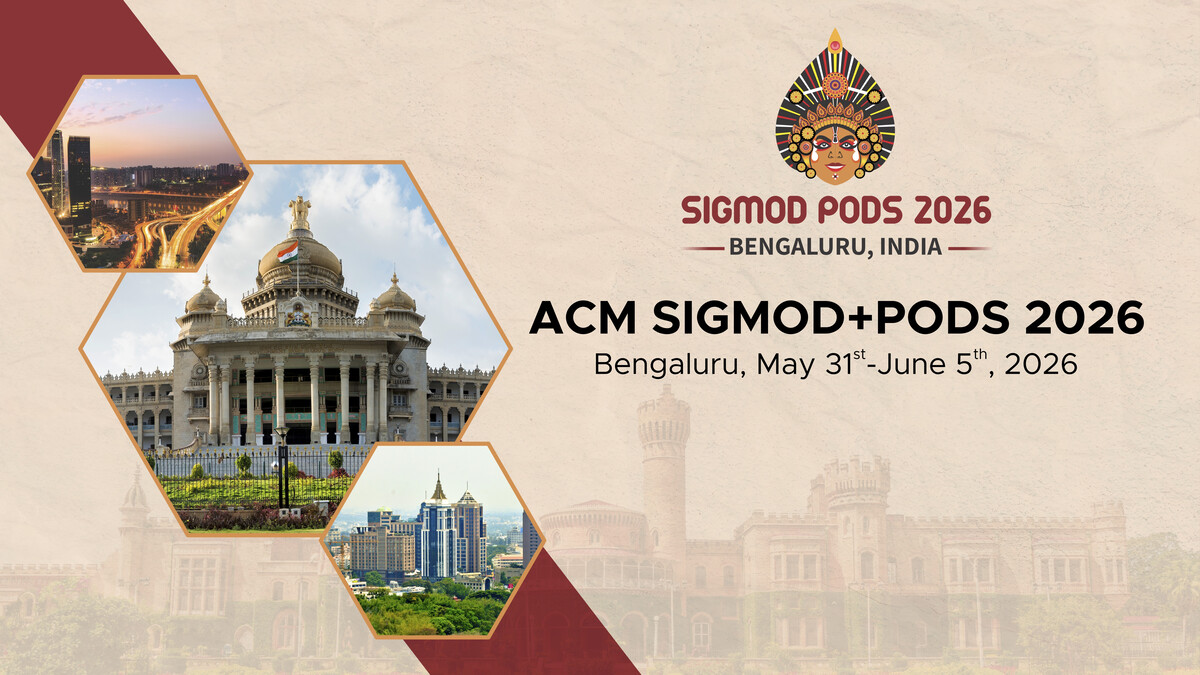Call for Papers
The GRADES-NDA workshop explores the challenges, application areas, and usage scenarios of managing large-scale graphs. It provides a forum for exchanging ideas on mining, querying, and learning from real-world network data, fostering interdisciplinary collaboration, and sharing datasets and benchmarks.
GRADES-NDA brings together researchers from academia, industry, and government to discuss advances in large-scale graph data management and analytics. Its scope covers domain-specific challenges, noise handling in real-world graphs, and innovations in databases, data mining, machine learning, data streaming, network science, and graph algorithms. Case studies across diverse areas are welcome, including Social Networks, Business Analytics, Healthcare, and Cybersecurity.
Topics of interest include but are not limited to the following.
- Graph modeling and processing – advances in representing, visualizing, storing, indexing, querying, and managing graph data.
- Graph query languages, visualization, and querying interfaces – design, usability, practical implementations, and use cases.
- Knowledge Graphs – construction, augmentation, reasoning, and neuro-symbolic approaches.
- GenAI techniques – integration of Knowledge Graphs and LLMs for information retrieval, question answering, knowledge inference, and natural language understanding.
- Graph processing platforms – including Titan, Giraph, GraphChi, SPARK/GraphX, GraphLab/PowerGraph, and others.
- Human-centric graph processing – interactive approaches for graph data exploration, querying, and analytics.
- Reliable graph data processing – validation and verification techniques for ensuring the trustworthiness of algorithms, query languages, applications, and systems.
- Graph metrics – methods for measuring graph characteristics, e.g., diameter, eigenvalues, triangle counting.
- Spatial and temporal graph analytics – updates, dynamic graphs, streaming analytics, evolution tracking, point-of-interest recommendation, community structure detection, etc.
- Graph mining and machine learning – including heterogeneous networks and knowledge graphs.
- Graph summarization and sampling – efficient methods for large-scale data.
- Noisy and uncertain graphs – analytics on incomplete, inconsistent, or unreliable data.
- Network dynamics – game theory, social contagion, and information propagation.
- Domain-specific graph analytics – applications in social networks, biology, business, finance, healthcare, transportation, etc.
- Vision and systems papers – potential or real applications of graph management, especially in the era of large language models.
Accepted archival papers will be published by ACM, indexed by DBLP, and will be available in the ACM DL.
Important Dates
- Abstract Submission: March 01, 2026
- Paper Submission: March 08, 2026
- Notifications: April 13, 2026
- Camera Ready Submission: April 26, 2026
- Workshop Date: May 31, 2026
Workshop Organizers
- Akhil Arora, Aarhus University & Copenhagen Center for Social Data Science, Denmark
- Stefania Dumbrava, ENSIIE & Télécom SudParis, France
Steering Committee
- Olaf Hartig, Amazon Web Services (AWS) & Linköping University, Sweden
- Semih Salihoglu, University of Waterloo & Kùzu, Canada
- Vasiliki Kalavri, Boston University, US
- George Fletcher, TU Eindhoven, The Netherlands
Paper Submission
Authors are invited to submit original, unpublished research papers in the following categories:
- Archival : Accepted papers under this category will be published by the ACM, indexed by DBLP, and will be available in the ACM DL.
- Regular (long) papers should be a maximum of 8 pages, excluding references and appendix.
- Short papers, demonstration papers, and vision papers should be a maximum of 4 pages, excluding references and appendix.
- Case studies should be a maximum of 4 pages, excluding references and appendix.
- 🆕 Non-archival : Accepted papers under this category will not be published in the proceedings, but will be listed on the website.
- Papers that are suitable for this category are work-in-progress papers presenting early results.
These papers should be a maximum of 4 pages in length, excluding references and appendix.
Please indicate the submission type in the title of the paper, e.g., "[Regular Research Paper] XXX", "[Short Research Paper] XXX", "[Demo] XXX", "[Case-Study] XXX", "[Vision] XXX", "[Work-in-progress] XXX"
Submissions must follow the latest 2-column ACM Primary Article Template (Overleaf template).
Reviewing will be double-anonymous, for which the submissions must be anonymized by following the same anonymity requirements as for regular track papers at the SIGMOD/PODS 2026 conference.
You can use the following LaTeX command to compile your paper without author names:
\documentclass[sigconf, anonymous, review]{acmart}.
Submissions that do not follow these requirements will be desk-rejected.
Submissions will be handled through CMT.
The Microsoft CMT service was used for managing the peer-reviewing process for this conference. This service was provided for free by Microsoft and they bore all expenses, including costs for Azure cloud services as well as for software development and support.
Past Workshops
GRADES-NDA is in its ninth edition, and had successful joint meetings co-located with ACM SIGMOD/PODS from 2018 to 2025. Specifically, it is the merger of the GRADES and NDA workshops, which were each independently organized and successfully held at previous ACM SIGMOD/PODS conferences: GRADES (since 2013) and NDA (since 2017). The organizers of GRADES and NDA mutually agreed upon a joint meeting from 2018 onwards.

